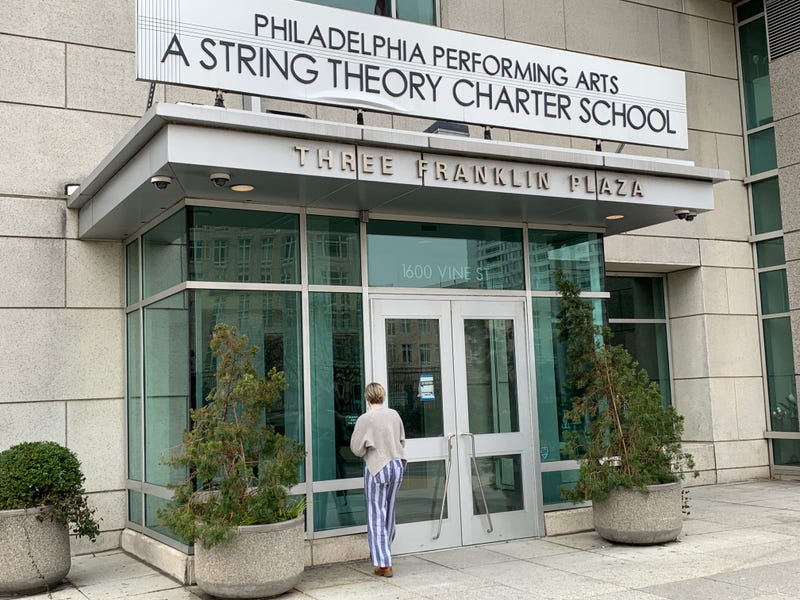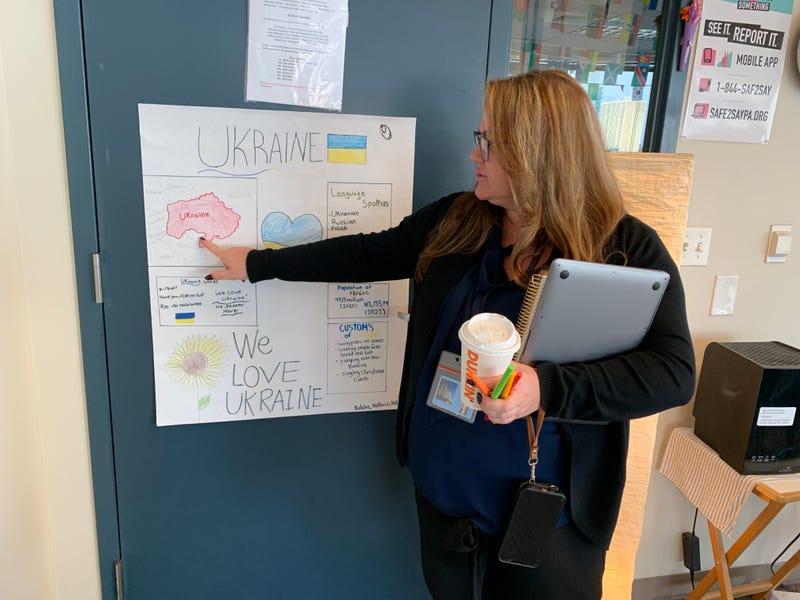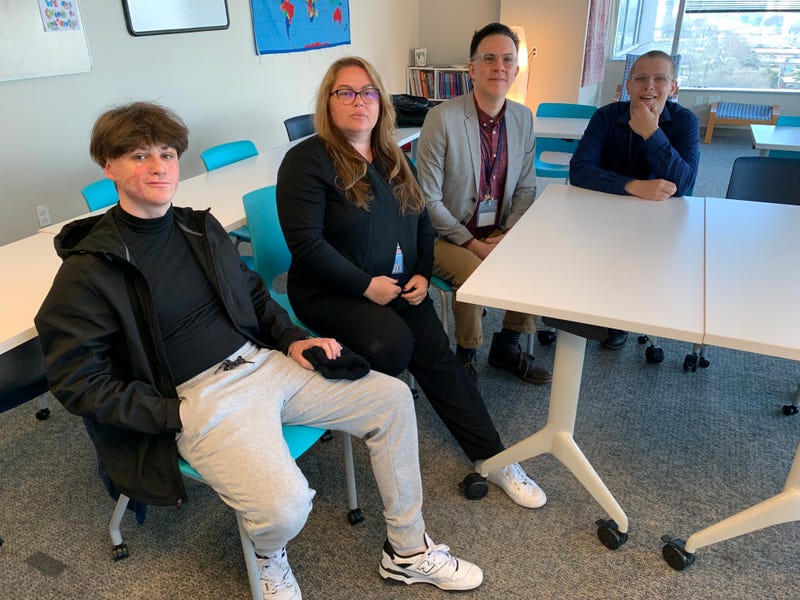
This story is part of a KYW Newsradio series looking back on how the war in Ukraine continues to affect the Philadelphia region a year after the Russian invasion.
PHILADELPHIA (KYW Newsradio) — Dozens of students who fled the war in Ukraine are continuing their education in Philadelphia schools.
"I was born in western Ukraine. So I didn't see the war," said Yurii Bohrebniuk, a junior at String Theory performing arts charter school at 16th and Vine streets, “but I exactly know what's going on there."
Bohrebniuk, 16, is among about 60 students from Ukraine who arrived at String Theory's three performing arts charter school campuses last fall.
Daniel Betekhtin, who teaches English as a Second Language (ESL), said the school staff knew this moment in history would require extra effort.
"They, I think, were so moved by the events that we saw starting last February that everyone realized it's like, now is the time for all of us to step up to the plate," Betekhtin said.
Students from Ukraine were admitted to the school under hardship provisions of the federal McKinney-Vento Act, which is normally used to accommodate students who are homeless.

Kate Guns, who speaks Russian and Ukrainian, started last fall as a translator at String Theory. She set up a website and social media pages to keep parents and the Ukrainian community informed.
Guns said one difference for the Ukrainian students is that, in their homeland, they're told what classes to attend.
“In Ukraine, you don't get to choose the classes you want. So you are given those classes. Here they were like, 'What class do we need to take?'" she said.
"All the Ukrainian kids are treated the same way as the American kids. So, when they misbehave, they get the same thing that any other American student will."
Related
Language, of course, is a barrier. At first, technology helped students adjust, ESL coordinator Damon Bennett said.
"One of the eighth graders — his first week here in Language Arts, or ELA, class — he wrote an entire essay in Ukrainian and just translated it into English using Google Translate. And the teacher totally accepted that,” Bennett said.
"The content, a lot of the times, was already there for them. It was just a question of bringing it out in the language."
While students' proficiency in English has improved in recent months, Guns said her job remains part translator, part counselor.
"Sometimes they don't feel comfortable explaining things not in their language,” she said. “So they do come to me."

String Theory junior Bohrebniuk says there hasn't been a day when he doesn't discuss the war with his teachers or newfound friends.
"I'm glad to share about that students know where is Ukraine on the map — because, before this situation, they didn't,” he said. “I'm so surprised for their support. And I glad to say this — that I feel the support from them."


